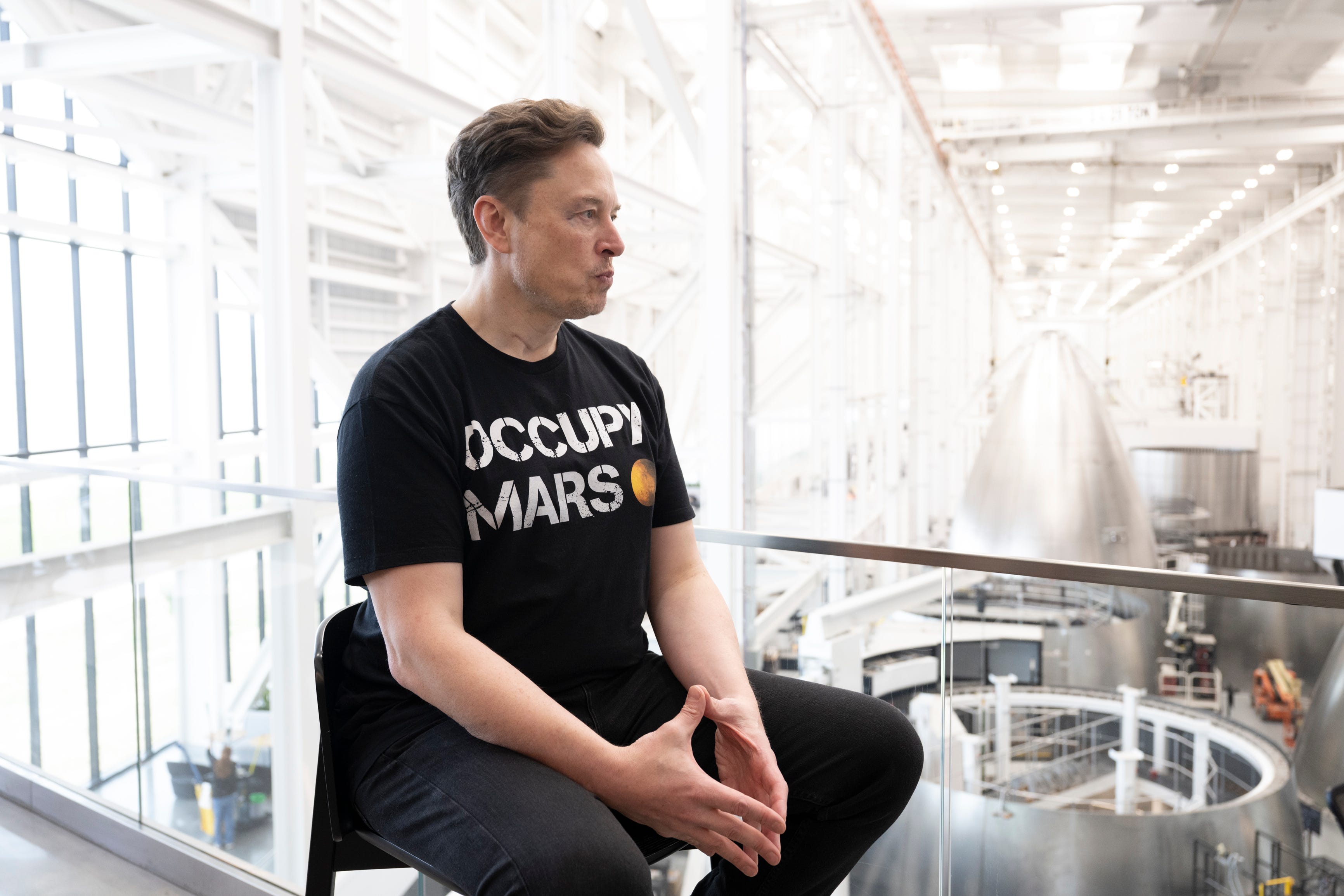
Marvin Joseph/The Washington Post via Getty Images
AI has increasingly become the connective tissue of Musk Inc.
In the last week, Elon Musk has shed light on two potential efforts to channel funding into his AI company, xAI, through his broader business empire.
Over the weekend, Musk said Tesla shareholders would vote on a potential investment in xAI, after responding to a Wall Street Journal report that SpaceX is looking into investing $2 billion into the AI venture. Earlier in the week, the billionaire also announced that xAI’s chatbot Grok would be integrated into Tesla “next week at the latest.”
It’s no surprise that Musk is leaning into AI — the CEO has spoken about the idea in many of Tesla’s earnings calls over the last year. What sets his approach apart, analysts say, is the way he’s blending the boundaries between his companies.
“What’s different from most other companies is the relationship and interplay between his private companies and a public company (Tesla),” Garrett Nelson, senior VP and equity analyst at CFRA Research, told Business Insider. “Most other companies are doing everything under one corporate umbrella.”
These aren’t the first examples of Musk blurring the lines between his companies, but they’re the latest indication that Musk Inc., the constellation of companies under his leadership, is becoming increasingly centered on AI.
Tesla is an ‘AI robotics company’
Musk has long pushed for Tesla’s focus on AI and robotics by prioritizing projects like autonomous driving, humanoid robots, and building out its Dojo supercomputer, his ambitious bid to rival Nvidia.
In a 2024 earnings call, the Tesla CEO said, “We should be thought of as an AI robotics company,” and those who think of Tesla merely as an auto company are holding “the wrong framework.”
With the recent launch of Tesla’s robotaxi service in Austin, that push is appearing more prominent, especially as Tesla’s auto business, in contrast, grapples with a loss in sales momentum.
Musk has promoted the advantages of buying into the “Muskonomy,” pitching it as a way for shareholders to tap into his business empire, which includes SpaceX, X, xAI, and The Boring Company. Musk has even said he would prioritize “longtime shareholders” of his other companies if any of his businesses were to go public.
Nelson told BI that Musk leveraging his other companies and resources could help Tesla meet its AI demands for autonomous driving.
“Tesla’s data needs are massive if its approach to autonomous driving is going to be successful (and scalable), as its approach will require the development of a global neural network,” Nelson said.
While exploring ways to pool resources across companies might benefit the broader Musk ecosystem, it could carry risk.
Last week, Grok sparked backlash with antisemitic outbursts on X, potentially putting investors on edge about integrating the chatbot into Tesla’s EVs. xAI apologized for the incidents and said that new instructions to prioritize engagement could have reflected “extremist views” from user posts on X.
Last year, Musk also sparked concern among investors when he diverted a $500 million shipment of Nvidia chips intended for Tesla to X and xAI instead. When asked about the move in a Tesla earnings call, he said it was beneficial to Tesla because the carmaker lacked the infrastructure at the time to use the chips.
Gadjo Sevilla, an analyst at EMARKETER, a sister company to Business Insider, said that Musk may be leaning on SpaceX and Tesla to fund xAI because he views them as more “mature businesses.” However, he said that shifting GPUs from Tesla to xAI in the past showed where Musk’s priorities were, and that could delay innovation at the automaker.
“The strategy of cannibalizing one business to prop up another one could take its toll,” Sevilla said. “Especially since competing carmakers are focused on developing one type of product, EVs.”
Musk seems to be ruling out the idea of a merger between Tesla and his AI startup for now. In response to an X user asking Tesla shareholders to weigh in on whether Tesla and xAI should be combined, Musk replied with a flat “No.”
Staying in the AI race is a costly venture
Investing in AI efforts might make sense from a strategy perspective, but it comes with a hefty price tag.
The development, training, and implementation of foundational AI systems, like xAI’s Grok 4, costs many, many billions.
In March, Musk announced that xAI had acquired X in an all-stock deal, valuing the AI startup between $33 billion and $80 billion. Since founding the company two years ago, he’s raised major funding, including around $12 billion in Series A, B, and C funding rounds last year. The company is expected to spend about $13 billion this year, however, and is rapidly burning through its cash reserves, Bloomberg reported.
Musk’s challenges keeping up with AI costs aren’t unique. In a May letter to California’s attorney general, OpenAI revealed concerns about competitors who are “far better funded, conventional for-profit businesses.”
Larger tech giants, like Amazon, Microsoft, Google, and Meta, aren’t showing any signs of backing down from their AI spending spree. Earnings reports from earlier this year indicate that their combined capital expenditures are set to exceed $320 billion in 2025, a notable rise from the roughly $246 billion the four companies spent in 2024.
Amazon plans to allocate over $100 billion this year toward expanding AWS and scaling AI infrastructure. Meta specifically has said it plans to spend $60 billion to $65 billion in capex on its strategy this year.
Zuckerberg certainly isn’t slowing down.
On Monday, he announced Meta would spend “hundreds of billions” on compute to build superintelligence. Wall Street seemed to approve, with Meta’s stock rising 1.3% following the news, suggesting that its concern isn’t about overspending on the AI race — but rather underspending and falling behind.
The post Elon Musk’s North Star is becoming increasingly clear appeared first on Business Insider.




